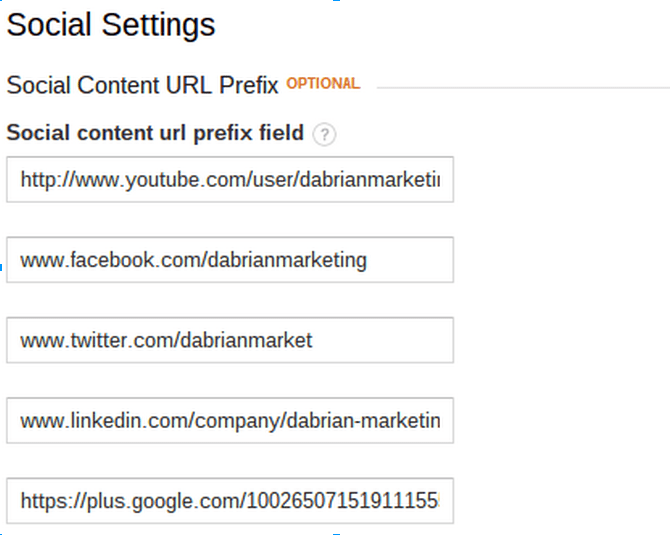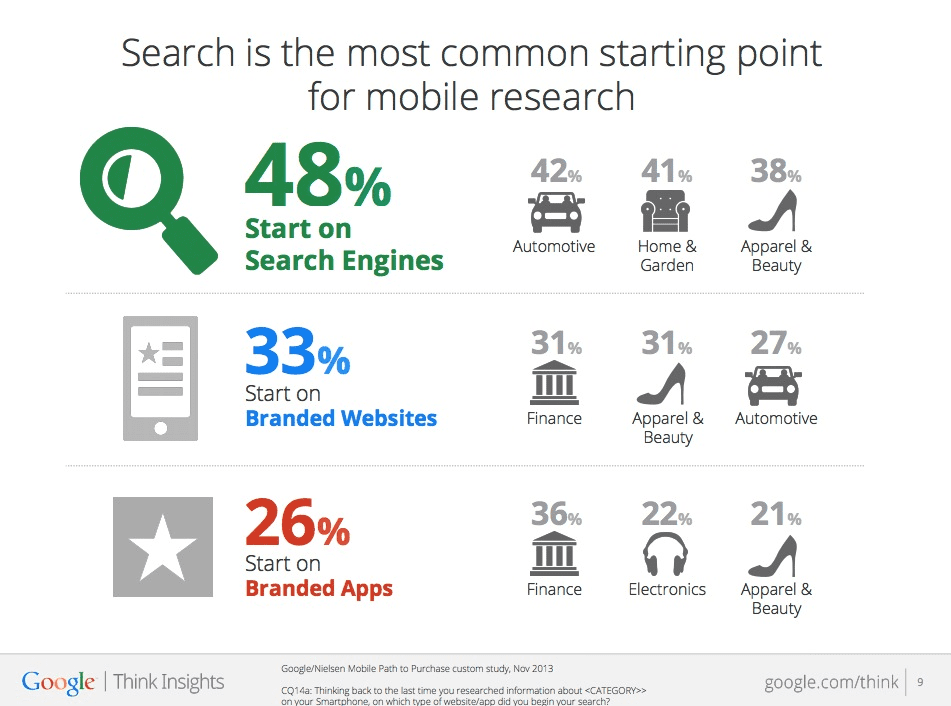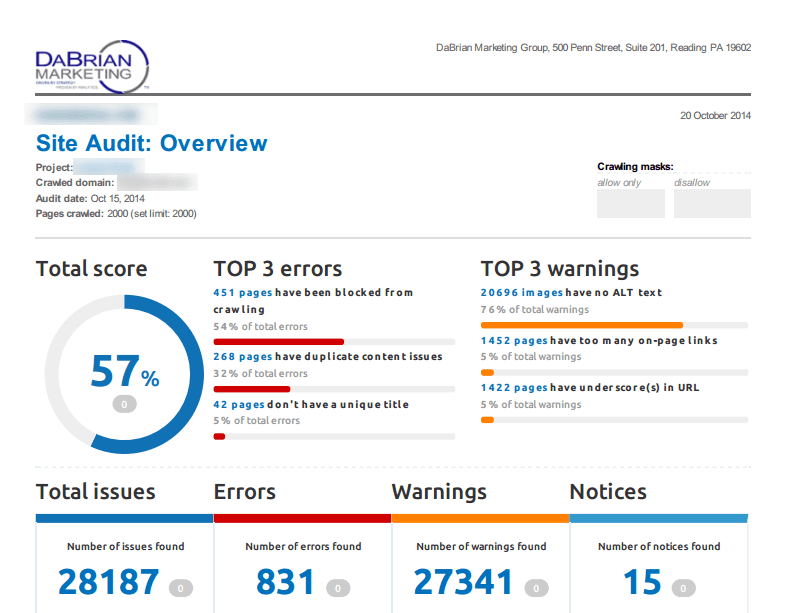There’s not a business on the planet that doesn’t want more leads and sales. In today’s marketing environment, it starts with search rankings or does it? SEO is about keyword relevancy and intent so SEO crosses over into other marketing tactics.
How does an SEO audit impact your business goals?
The purpose of a website or SEO audit is to evaluate the existing position of your website as it relates to search engine performance. Sometimes it’s not the keywords or rich snippets that are impacting SEO, it’s your website. The audit will provide you with information to prioritize your need to grow your business, improve your search engine results, and generate more leads. You can draw some parallels from being a GM in the NFL. You have to evaluate your team, staff, facilities, etc. The evaluation provides you with a plan and a course of action to achieve the ultimate prize of an NFL Championship.
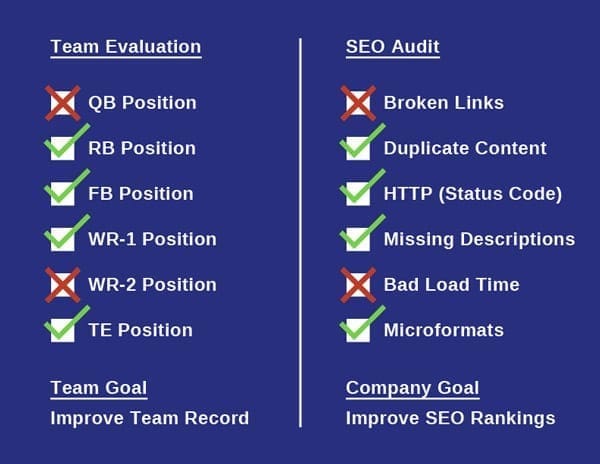
Do You have the Resources to Act on SEO Evaluation?
There are a number of SEO audit tools out there on the web. They range from free to paid solutions but never ask any questions about your resources (webmaster, programmers, tools, seo consultants, etc.) to fix the problems. Someone may have done some type of SEO work but what was or was not included in the SEO project. The bottom line is if you don’t have the resources or know how to make any changes, what’s the point of the SEO evaluation? It’s the equivalent of a team having the number 1 pick in the NFL Draft without the money to pay, coaches to prepare, and facilities to train or the ability to keep him.
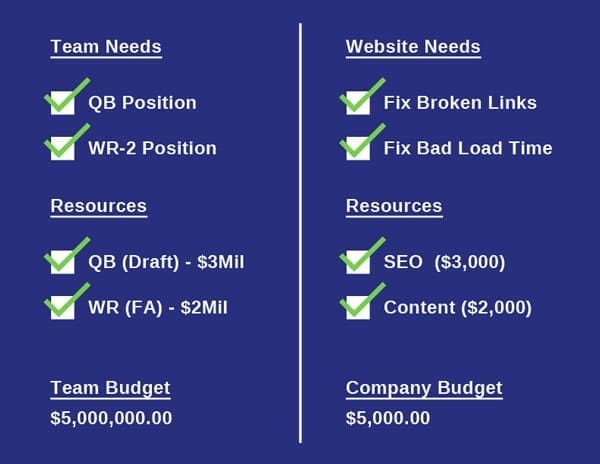
Are you looking at SEO trending (#mobile)?
The SEO landscape continues to change for mobile, (Mobilegeddon) desktop and tablet. In addition, you need to take into consideration your specific business and the competitive landscape. In general, website audits software does not account for this. Again using the football analogy, the entire league is turning into a pass happy league, so the question is do you have a plan to account for the trending. If not, what’s the game plan for the future and the competitive landscape (talent, scheme, etc)?
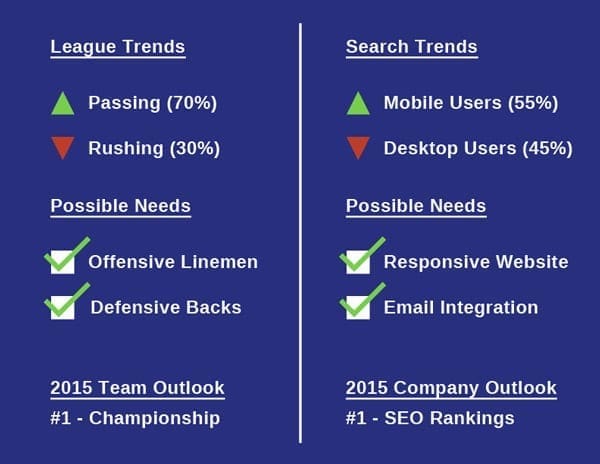
Are you realistic with your SEO expectations?
I have clients or prospects call the office all the time with this statement that I want to be number one in the search engine results. It’s ok to have this expectation if you’re fairly well positioned within the search engine results but if your website is a structural or content nightmare, let’s get real! It’s like the equivalent of Raiders talking about winning the championship when they haven’t made it to the playoffs in almost a decade. So, please set realistic expectations and not dreams!
When you decide to run an SEO audit for your business I recommend settings goals and evaluating whether or not you’re going to be able to do anything with the information provided. Consider the resource that you may have to actually fix the problem/s. Take a look at your industry trends to prepare for your business future and the competitive landscape. Be realistic with your expectations after your analysis and plan the next steps.


